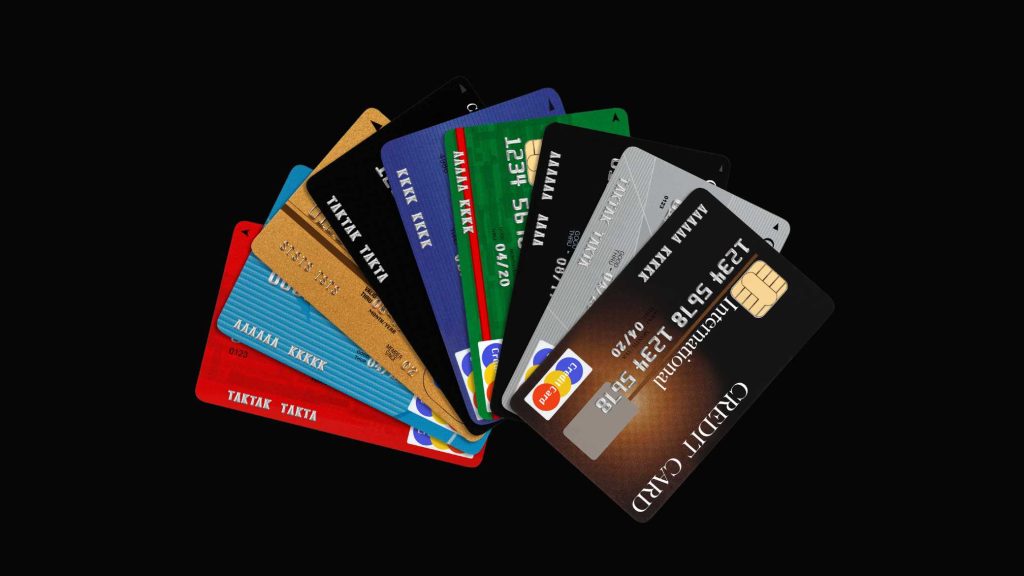How to Choose the Right Credit Card ? : Comprehensive Guide 2025
How to Choose the Right Credit Card : Choosing the right credit card is crucial for managing personal finances effectively. With hundreds of options available, each offering different rewards, interest rates, and benefits, finding the perfect card can be overwhelming. The right choice depends on an individual’s spending habits, credit score, and financial goals.
Table of Contents
This guide explores the key factors to consider when selecting a credit card and provides insights into making an informed decision.
Understanding Your Credit Needs

Before choosing a credit card, it is essential to assess your financial situation and credit needs. Ask yourself the following questions:
- Do you need a credit card for everyday purchases or emergencies?
- Are you looking for rewards, cashback, or travel benefits?
- Do you plan to carry a balance or pay off the full amount each month?
- How is your current credit score?
Types of Credit Cards
Credit cards come in different categories, each catering to specific financial needs. Understanding these types helps narrow down the options.
Also Read : Top 10 Financial Tips for Young Adults
1. Rewards Credit Cards
Rewards credit cards offer incentives for spending. These incentives typically fall into three categories:
- Cashback Credit Cards: Provide a percentage of cashback on purchases.
- Travel Rewards Credit Cards: Earn points or miles that can be redeemed for flights, hotels, and other travel-related expenses.
- Points-Based Credit Cards: Offer points for every purchase, which can be redeemed for merchandise, gift cards, or discounts.
2. Low-Interest and 0% APR Credit Cards
These credit cards are ideal for individuals who plan to carry a balance. Features include:
- 0% Introductory APR: No interest on purchases or balance transfers for a specified period.
- Low Ongoing APR: Lower-than-average interest rates for those who occasionally carry a balance.
3. Balance Transfer Credit Cards
Designed for individuals who want to transfer high-interest debt to a card with a lower interest rate, these cards typically offer:
- 0% APR for a limited period
- Lower interest rates on balance transfers
- Balance transfer fees (typically 3-5% of the transferred amount)
4. Secured Credit Cards
Secured credit cards are ideal for individuals with poor or no credit history. Features include:
- Requires a security deposit (used as collateral)
- Helps build or rebuild credit
- Typically lower credit limits
5. Student Credit Cards
Aimed at students with limited credit history, these cards usually have:
- Lower credit limits
- Rewards for responsible use
- No annual fees
6. Business Credit Cards
Designed for entrepreneurs and business owners, these cards offer:
- Expense tracking features
- Higher credit limits
- Business-related rewards and benefits
Key Factors to Consider When Choosing a Credit Card

Once you determine the type of credit card that suits your needs, consider the following factors before making a decision.
1. Annual Percentage Rate (APR)
The APR represents the interest rate charged on outstanding balances. Cards may have:
- Fixed APR: Remains constant over time.
- Variable APR: Fluctuates based on market interest rates. Choosing a low APR card is beneficial if you plan to carry a balance.
2. Annual Fees
Some credit cards charge an annual fee, while others do not. Consider:
- No-annual-fee credit cards: Best for those who do not use their cards frequently.
- Premium credit cards with fees: Offer exclusive rewards and benefits, which may justify the cost if used effectively.
3. Rewards and Benefits
Look for a card that matches your spending habits:
- Frequent travelers: Opt for a travel rewards card with airline and hotel perks.
- Everyday spenders: Choose a cashback card with high rewards on groceries, gas, and dining.
- Online shoppers: Look for points-based cards with e-commerce benefits.
4. Sign-Up Bonuses
Many credit cards offer welcome bonuses. These may include:
- Cashback bonuses
- Bonus travel miles
- Introductory 0% APR periods Be sure to meet the spending requirement to qualify for the bonus.
5. Credit Limit
Your credit limit determines how much you can spend. A higher credit limit can:
- Increase spending power
- Improve credit utilization ratio (positively impacting your credit score) Ensure the credit limit aligns with your financial situation.
6. Foreign Transaction Fees
For international travelers, choosing a credit card with no foreign transaction fees saves money on purchases abroad. Typical fees range from 1% to 3% per transaction.
7. Customer Service and Security Features
Look for a credit card issuer with excellent customer service and robust security features, including:
- Fraud protection and zero liability policies
- 24/7 customer support
- Virtual card numbers for secure online transactions
How to Compare Credit Cards
To find the best credit card, use online comparison tools and consider the following steps:
- Determine your credit score: Many premium credit cards require a good or excellent credit score.
- Identify spending habits: Choose a card that rewards your regular expenses.
- Compare interest rates and fees: Low-interest and no-annual-fee cards are ideal for budget-conscious users.
- Check customer reviews: User experiences can reveal hidden fees or poor customer service.
Common Credit Card Mistakes to Avoid
- Applying for too many credit cards at once: Multiple applications can negatively impact your credit score.
- Ignoring interest rates and fees: Always read the terms and conditions carefully.
- Overspending to earn rewards: Avoid unnecessary purchases just to accumulate points.
- Failing to make timely payments: Late payments lead to fees and credit score damage.
- Ignoring balance transfer fees: Ensure the benefits outweigh the costs when transferring balances.
How to Choose the Right Credit Card – Conclusion

Choosing the right credit card requires careful consideration of your financial goals, spending habits, and credit score.
Buy Now : Options Trading Master Class
By evaluating interest rates, rewards, fees, and security features, you can select a card that best fits your needs. With responsible usage, a credit card can be a valuable financial tool that enhances your purchasing power and creditworthiness.
Keywords : How to Choose the Right Credit Card – How to Choose the Right Credit Card 2025



